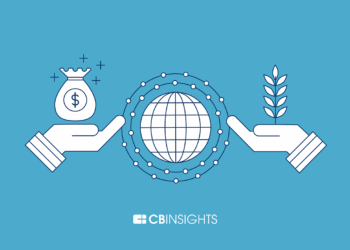Doing good and doing business are separate entities
How do you drive lasting change in your community? Do you hand out bread? Grains of rice? Sachets of water? Naira notes? No matter how you do it, if it does not influence the lives of the people, improve the community, lift the youths out of the hole, it is nought.
On The One Hand
Doing good and doing business are separate entities. One profit. The other does not. A company can be wealthy and shun its host community. And there are companies like that. But doing good, caring for your host community [without an ulterior motive] can contribute to the good of your business. Now or later.
On the other hand
Doing business and doing good simultaneously is what one telecom firm has embraced. Registered in Dubai for the good of the communities and not for profit, Airtel Africa Foundation is a flagship initiative to provide education to gifted but financially disadvantaged youth. The foundation has proper corporate governance overseeing the activities.
As a catalyst for positive change, the foundation leverages technology to create new economic opportunities and invest in the future. It does this by empowering communities in Nigeria through education and digital skills to unlock financial inclusion. What does this mean?
In The Long Term
The foundation trained 26,000 youths. Connected 300 schools to the internet. Awarded 100 scholarships to indigent students. Adopted 10 public schools for long-term support. It plans to connect more schools in 13 African countries by 2026. To connect a school, the foundation provides routers, fibre cable, IT materials, and teaching aids. Airtel Africa sponsored the initiatives.
Dinesh Balsingh, CEO, Airtel Nigeria, explained that the foundation is a new chapter for Airtel’s social impact drive. The second-largest telco by subscribers has connected millions of Africans to its voice and data network. Its foundation has brought the achievements into one basket. And this has found an expression through its FEED acronym [Financial inclusion, Education, Environment, Digital training].
Buttressing Balsingh’s statement, Sunil Taldar, CEO, Airtel Africa, highlighted the foundation’s broader mission in 14 markets. This mission extends beyond connecting people. “We aim to be a genuine partner in Africa’s progress.” To cement its work in the education space, the foundation works with the United Nations Children’s Fund [UNICEF]. This collaboration has helped the foundation connect 1,200 schools. Provide digital learning resources to over one million students. Train 17,000 teachers.
The laser focus is on education. Teacher training. Youth empowerment. As it is in Nigeria, so it is in Uganda. Kenya. Tanzania. Zambia. Rwanda. Etc. For instance, in Nigeria, the foundation is building information tech labs. Fostering tech hubs. Empowering communities. In Uganda, it is training 50,000 youths. Connecting 415 schools. Adopting 10 schools. Training 100 women in tech.
In Kenya, it is training 5,000 youths. It will establish 50 digital communities. Adopt 10 schools. Train 100 women in tech. In Tanzania, 1,000 schools are connected. The Democratic Republic of Congo has 25 schools for adoption and 50 local scholarship awards.
Segun Ogunsanya, chairman of the foundation, explained that the vehicle aims to touch 10 million lives by 2030. Five years from now. The goal will not change. It will be education. Education. Education. We are proud of our people’s role. Those who have volunteered their time, expertise, and mentorship. Giving is not just writing a cheque. It is giving your time and presence.’’ That is how to leave a legacy.
In the short term
What is your plan to drive lasting change in your host community?





